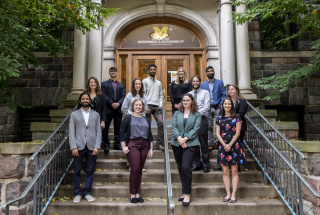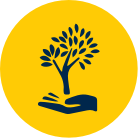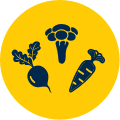Why SEAS?
Meet the future
The world needs bold leaders ready to tackle urgent environmental challenges. At SEAS, we say “bring it on.” We’re the architects of a new tomorrow: transforming research into action to create a healthier planet for all.

Study: Hunting wolves reduces livestock deaths measurably, but minimally
An international research team led by SEAS has revealed quantitative impacts of wolf hunts, providing policymakers with new data that can be used to combat livestock loss. The researchers, including Neil Carter, SEAS associate professor, say this is an important part of a small but growing body of research that brings relevant information to a charged debate about wolf management strategies.
Academic Rigor—Real-World Impact

Research News
The latest in research from SEAS faculty and students

Impact Stories
Master's projects produce real-world throughout the region—and the globe.

Community Highlights
Our SEAS community is recognized through notable awards and honors across all disciplines.

In the Media
Our experts in the field weigh in on issues across a wide spectrum of media outlets.
Themes
Sustainability Themes cut across all specializations—and give students, faculty, and partners a chance to dig deeper into a particular area of impact and interest. Themes are also used as rallying points for cross-campus research, teaching and civic engagement collaborations.
Bold Leaders: Inventing Tomorrow

"The Great Lakes University"
The Great Lakes are the great uniters. That’s how SEAS Professor of Practice and Engagement Mike Shriberg (MS ’00, PhD ’02) describes these valuable resources.
Read more

Meet the Future of Sustainable Food Systems: A Focus on Soil Health and Crop Diversity
Although the global population has more than tripled since 1950, studies show that modern intensive agriculture, which largely ignores ecological practices and focuses on a small number of high-yielding commodity crops reliant on chemical fertilizers and pesticides, did not grow out of necessity, but rather a drive for profits.
Read more

Island Biology: “A Lot of Bang for Your Conservation Buck”
Islands, which comprise just 5.3% of the planet’s land area, hold about 20% of the world’s wildlife and 50% of endangered species. They offer boundless opportunities to inform basic ecological science and applied conservation biology, and are integral to protecting global biodiversity.
Read more
Upcoming Seas Events
Data and AI in Society Lecture Series
6:00 pmThe lecture explores the pressing questions surrounding artificial...
SEAS/PitE Fall Welcome
12:00 pmAll students, faculty, and staff are encouraged to attend this...
Pite Career Services Overview Workshop
5:00 pmThis session will introduce students to the full range of career...
MLA Portfolio Review Program Information Session
12:00 pmThis session will provide an introduction to the alumni matching...















